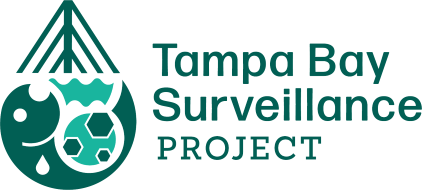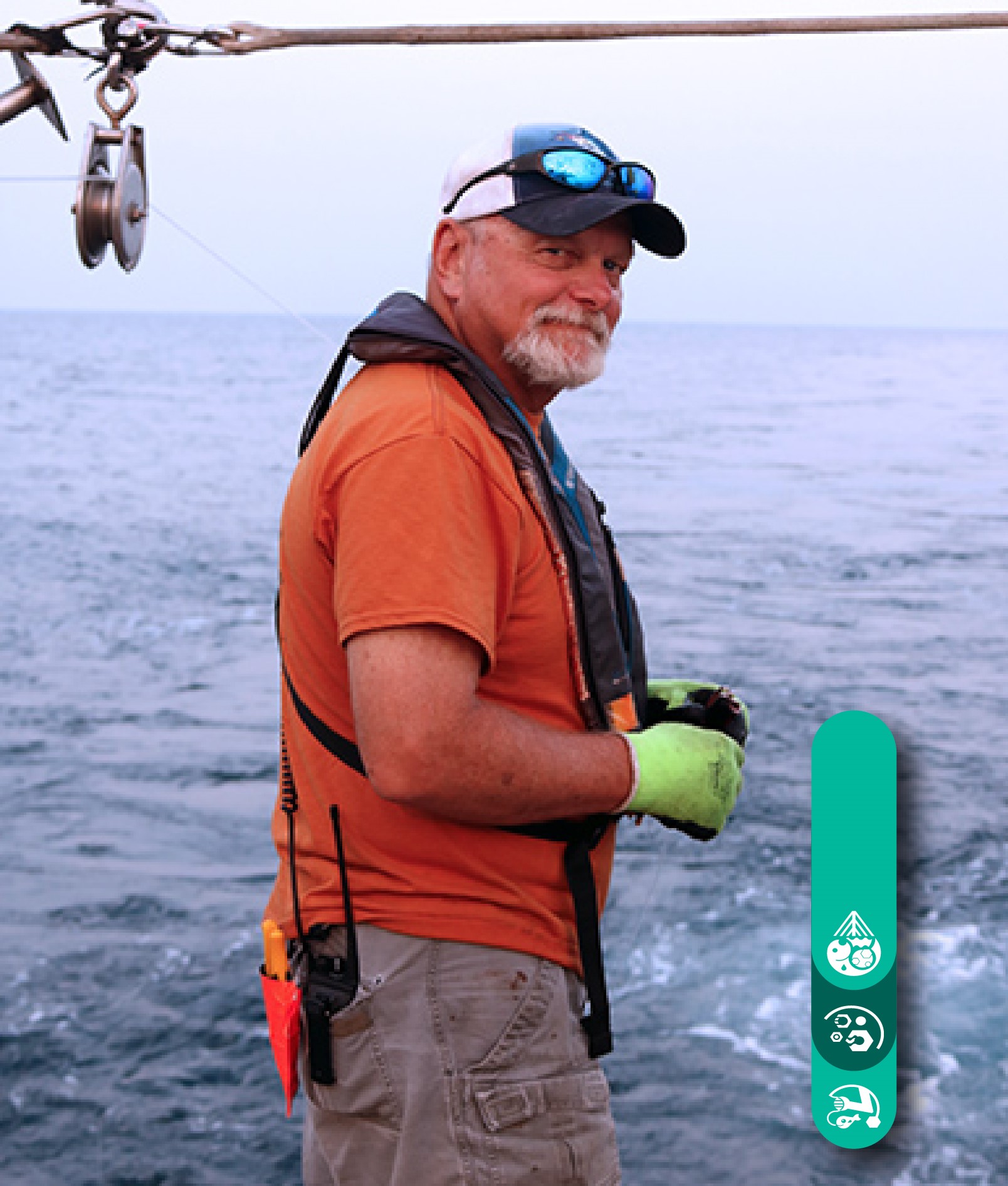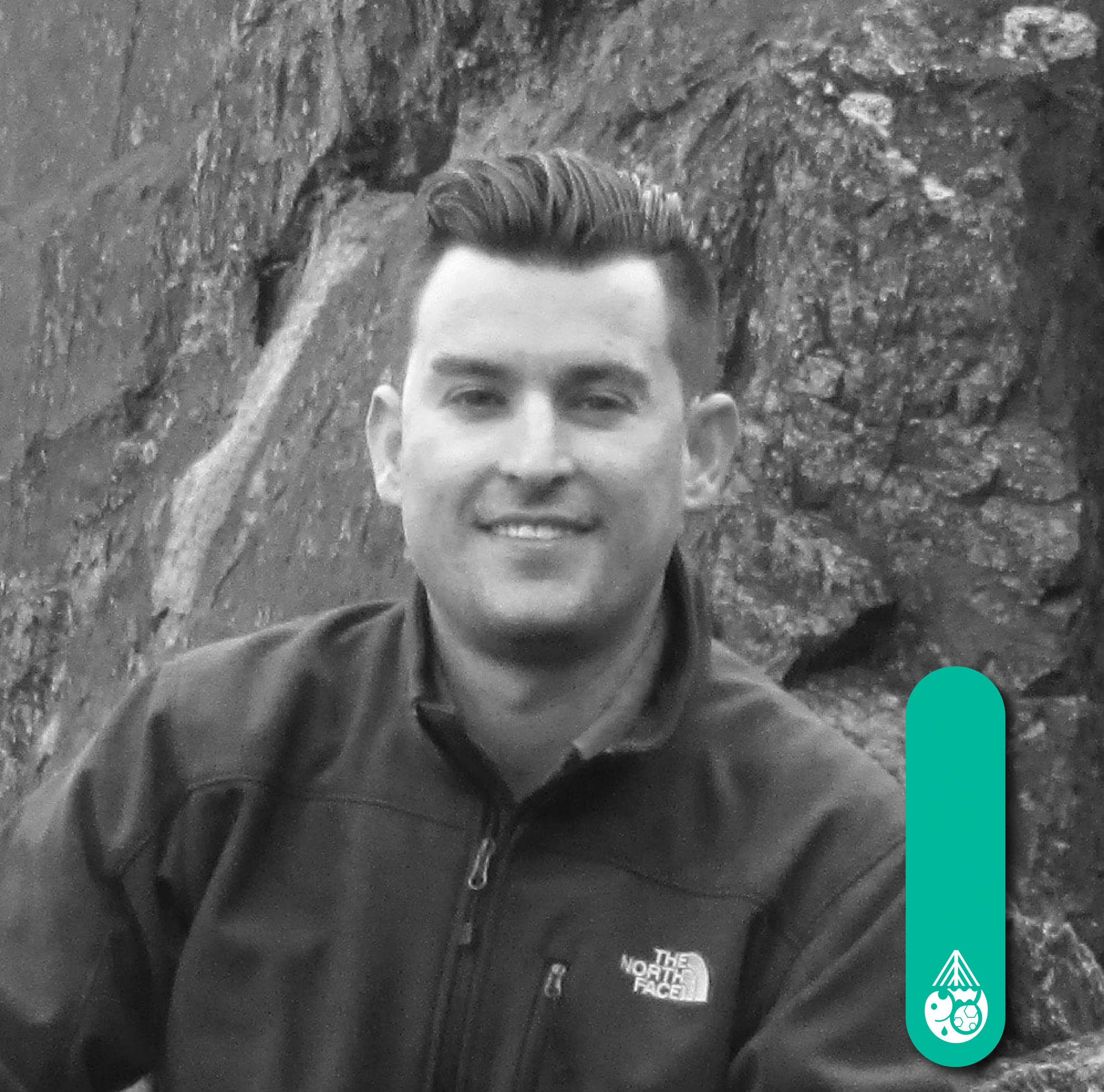Meet Our Team
We are an interdisciplinary research team working together to learn more about how Tampa Bay waters influence our health and our lives.
Steve Murawski, PhDPrincipal Investigator
Dr. Murawski is a fisheries biologist and marine ecologist involved in understanding the impacts of human activities on the sustainability of ocean ecosystems. Dr. Murawski is a professor, seasoned marine researcher and science administrator, and the Downtown St. Pete Partnership Endowed Chair of Biological Oceanography at the University of South Florida College of Marine Science. He oversees all aspects of the TBS study design, execution, reporting, financial management, outreach and intersections with the Management Transition Advisory Group.
Susan Fogelson, MS, DVM, PhD, Diplomate SCVPVerterinary Pathologist
Dr. Fogelson is a board certified veterinary anatomic pathologist with over 20 years of aquatic animal health diagnostic and research endeavors. In addition to her veterinary degree, she also holds a master’s degree in Fisheries and Allied Aquacultures and a PhD in Aquatic Animal Pathology. Dr. Fogelson provides histology, aquatic veterinary, and pathology support for researchers, biologists, aquarists, aquaculture professionals, veterinarians, and graduate students throughout the country. Over the years she has participated in a wide variety of research explorations that range from bioinformatic analysis of aquatic bacterial genomes to fish immunology, pathology, and transcriptomics as they relate to disease. Her current role for the Tampa Bay Surveillance project is to evaluate fish vital organ systems via histopathology and provide insight on chemical contaminant levels in relation to fish health.
Jessie Fly, PhDEnvironmental Anthropologist
Dr. Jessie Fly is an Associate Professor of Anthropology at Eckerd College. As an environmental anthropologist, she has studied conservation, food security, and issues of environmental justice in Southern Appalachia, Vietnam, and Uganda. For the last eight years, she has been researching shore fishing communities around Tampa Bay. For this project, she will help direct the team of social science researchers, who will conduct surveys, interviews, and focus groups.
Ethan Goddard, MSMEC Laboratory Manager
Ethan Goddard has 20+ years of experience supporting applied analytical biogeochemistry research with an emphasis on stable isotope, trace element and organic biomarker analytical techniques. Ethan manages the Marine Environmental Chemistry (MEC) Laboratory, which houses magnetic sector isotope ratio and triple-quadrupole mass spectrometers and specializes in stable isotope, contaminant and biomarker biogeochemical analyses. Ethan supports the research of a diverse array of faculty, external collaborators and agency partners, informally mentors graduate students in the art and science of analytical chemistry, and loves to play and coach soccer.
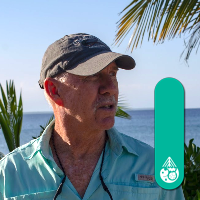
Gregg Brooks, PhDGeoscientist
Gregg Brook’s research interests include the geologic development of continental margins and the study of sediments and sedimentary processes, associated anthropogenic impacts and extreme events preserved in the coastal sedimentary record.
Roxann VistocciProgram Planner Analyst
Roxann’s professional background spans field-based ecology, education, and business administration. Her wildlife research experience includes collaborations with the University of Montana, the Missouri Department of Conservation, and the National Ecological Observatory Network (NEON). Roxann has taught in diverse settings, from NYC and Seattle to Telluride, Colorado, also serving as a naturalist on the Georgia coast and in Costa Rica. After successfully owning a small business in Colorado, she is now pursuing an MPA at the USF School of Public Affairs. For the TBS project, Roxann assists with project planning, organization, and outreach, oversees website development, and manages the project’s social media accounts.
Ryan CoffeyBiological Science Intern
Ryan is a recent graduate of Eckerd College where he earned a B.S. in Marine Science. As an intern for the TBS study, Ryan assists in collecting, processing, and analyzing fish and sediment samples. Having spent the majority of his life in water, understanding and preserving the ocean has always been a focus.
Morgan SharbaughMS Graduate Research Assistant
Morgan is a master’s Student in Dr. Romero’s Lab, at the University of South Carolina, studying contaminants in the Tampa Bay sediments. With a background in Coastal Wetland Sciences and Marine Biochemistry, she is excited to expand her knowledge of conservation and remediation studies. Morgan is focused on the spatial variability in benthic surface sediment contaminants across the Tampa Bay.
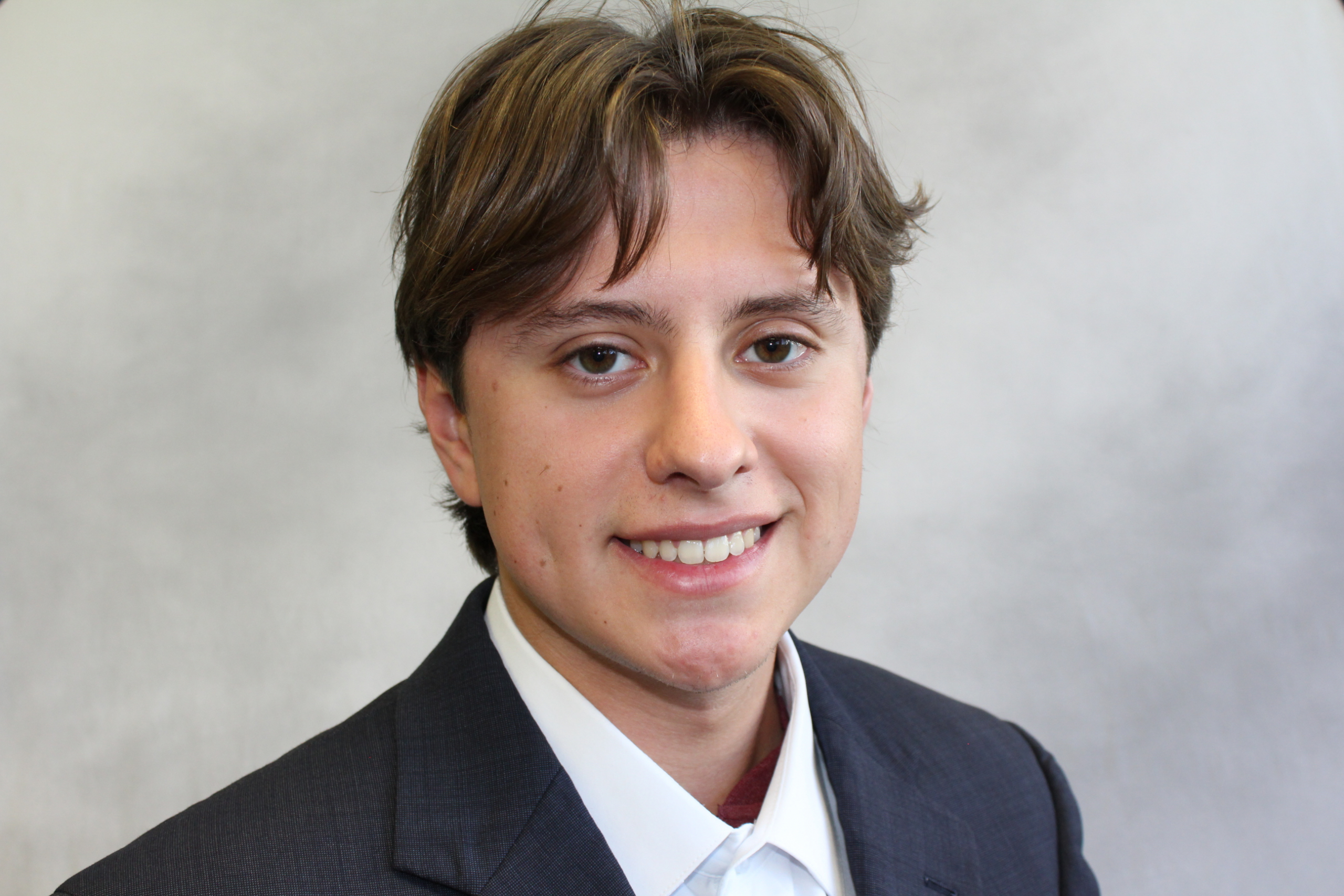
Gabriel McKenzieFL High Tech Corridor Intern
Gabriel is from Bethesda, Maryland and moved to Sarasota, Florida in 2018, where he studies Marine Biology with a minor in Environmental Science and Policy at the University of South Florida. He works with the Tampa Bay Surveillance Project team as a Spring 2026 intern and assists with processing invertebrate samples to be analyzed for contaminants of emerging and known concern. He is excited to be a part of a project whose work has real world implications on potentially identifying harmful chemical contaminants and influencing the management of such contaminants.
Heather O'Leary, PhDEnvironmental Anthropologist
Dr. Heather O’Leary has nearly 20 years of experience engaging communities in their water practices and beliefs— making water risk mitigation plans and policies more democratic, efficient, and sustainable. Her research interests include transnational disparities related to women’s rights, water politics, urbanization and the environment. For TBS and companion project Tampa Bay REACH, Dr. O’Leary is responsible for the design, collection and analysis of results from fisher interviews and associated elements related to how subsistence fishers differ from other fishing-oriented stakeholder groups.
Patrick Schwing, PhDGeoscientist
Dr. Schwing’s research addresses societally relevant and globally significant issues including land-use development impacts, deep sea mining, oil spills, and the distribution and impacts of microplastics on marine systems. He utilizes sedimentological, radiochemical, micropaleontological, and biogeochemical tools to document the changing structure and function of benthic and planktic ecosystems. Dr. Schwing is an assistant professor at Eckerd College, a courtesy research associate at USF’s College of Marine Science, and is also involved with several international, collaborative projects. Dr. Schwing and the Eckerd College group are responsible for overseeing sediment sampling activities and developing chronologies of pollution by various CECs and CKCs over time.
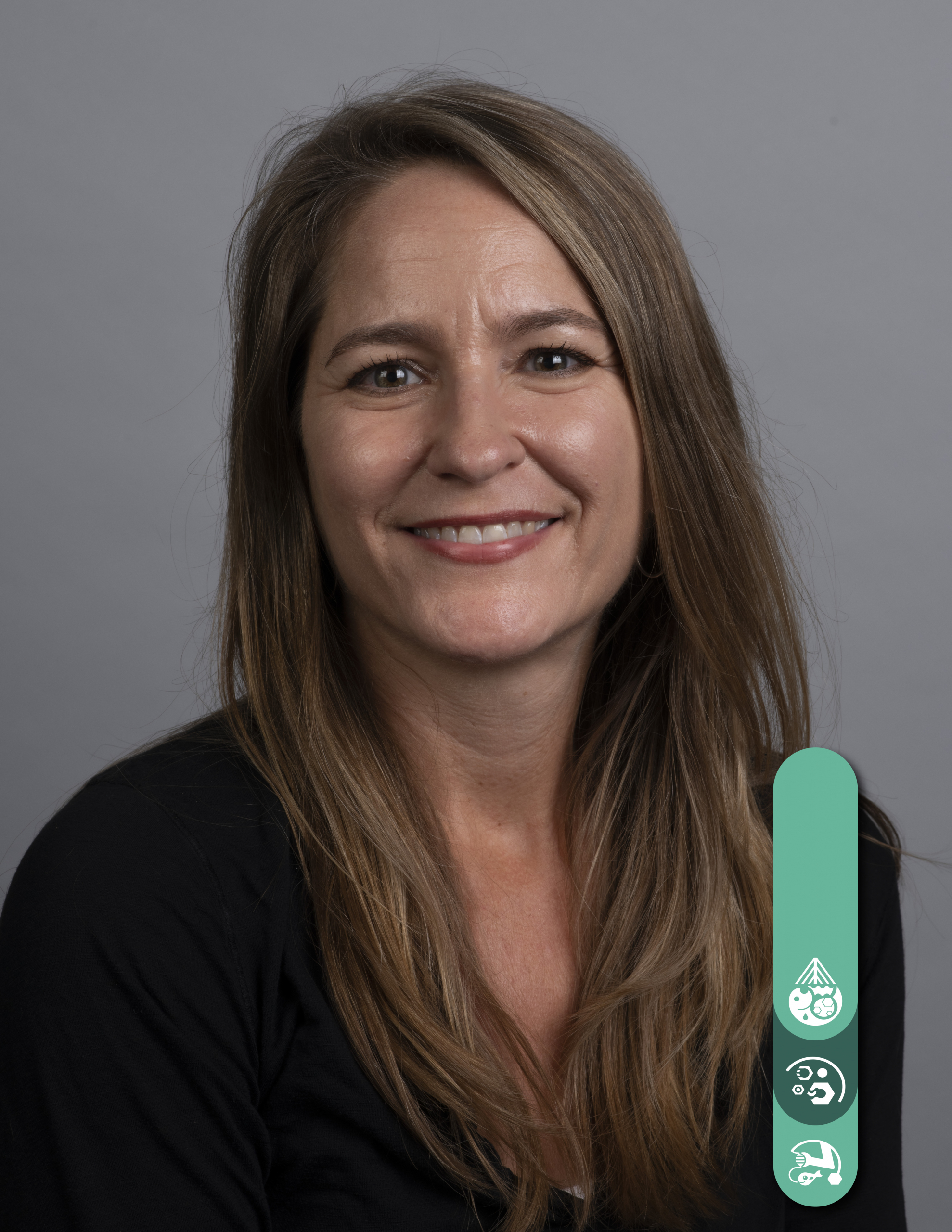
Sherryl Gilbert, MS, MBAAssistant Director of Marine Research and Development
Ms. Gilbert is the Assistant Director of Marine Research and Development for the TBS project and has over 20 years of experience specializing in large, complex scientific research projects. She holds a MS in Physical Oceanography and a MBA from the University of South Florida. Sherryl is responsible for the overall coordination and management of the project including financial and activity reporting, environmental compliance, MTAG meetings and communications, and outreach activities.
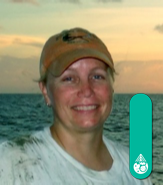
Rebekka Larson, PhDGeoscientist
Rebekka Larson’s research focuses on high resolution investigations in the sedimentary record for natural variability, change, and events, as well as environmental impacts of anthropogenic activities/events. This includes the refinement of short-lived radioisotope geochronology (primarily excess 210Pb, excess 234Th) combined with high-resolution (mm) scanning elemental techniques (XRF) and sediment texture and bulk composition to define the sedimentary signature of events. Projects include investigations in the Gulf of Mexico including the impacts of the Deepwater Horizon oil spill, West FL Shelf, Tampa Bay, St. Lucia, Dominica, US Virgin Islands, and Cuba.
Alexandra LeeMS Graduate Research Assistant
Alexandra is a master’s student in Dr. Murawski’s lab, specializing in Marine Resource Assessment (MRA). Growing up in Minnesota, she has always been concerned with marine preservation, conservation, and reducing the impact of human activities on marine ecosystems. With a background in chemistry, her graduate research will be guided by the objectives of this project, where she’ll contribute skills to study, characterize, and quantify chemical contaminants, such as PFAS/PFOS. She’s passionate about outreach and community science education, a major goal of this project.
AJ GrossMS Graduate Research Assistant
AJ Gross is a master’s student in Mya Breitbart’s and Steve Murawski’s lab. His role on the project is studying emerging chemical contaminants, bacteria, and viruses in Eastern Oysters (Crassostrea virginica). His work utilizes gas chromatography mass spectrometry (GC-MS) to characterize over 90 PCBs, insecticides, fungicides, herbicides, UV-filters, phthalates (plasticizers), and flame retardants, as well as molecular biology techniques to detect the presence of pathogenic bacteria and viruses or viral indicators of wastewater pollution in oyster tissues. His interest in the project focuses on characterizing what chemical pollutants are making their way into Tampa Bay and looking at ways to minimize/prevent their addition through treatment strategies.
Heidi HicksGraphic Designer
Heidi is a recent graduate of the University of South Florida’s Graphic Arts Program and is currently implementing graphic design and web development needs. Heidi designed the new Tampa Bay Surveillance logo and brand system as part of their Senior Research class in 2024. Outside of Graphic Design, Heidi spends their time sailing. This experience of growing up in Tampa Bay and making science accessible are the focuses of their interest in the Tampa Bay Surveillance Project.
Holly ShuffSurvey Coordinator
Holly Shuff is a graduate student in Florida Studies at the College of Arts and Sciences of the University of South Florida. She received her Bachelor’s degree in Anthropology at the University of South Florida. Her interdisciplinary research focuses on coastal and environmental research and policy. Shuff has actively contributed as an undergraduate and graduate Research Assistant to Dr. O’Leary’s EcoFem Lab. As a Florida native, Shuff enjoys seeking applied and community-based solutions to local environmental issues.
Sydney TritschlerLaboratory Technician
Sydney Tritschler recently graduated from USF with a B.S. in Marine Biology and a minor in Environmental Science & Policy and currently serves as the Science Coordinator for the Florida Institute of Oceanography. An AAUS Scientific Diver with over 6,000 nautical miles logged at sea, she’s conducted extensive coral reef monitoring and fish ecology research in both the Caribbean and Pacific, including expeditions in Curaçao, Union Island, and Palau. In her free time, she enjoys reading, diving, and traveling. Sydney supports the TBS project by assisting with oyster dissections, barnacle deployment and processing, and other lab and field operations related to contaminant analyses.
Isabel Romero, PhDOrganic Geochemist
Dr. Romero’s research focuses on uncovering geochemical signatures in the ocean as archives of how marine systems function and respond to natural and anthropogenic events. As the principal scientist in charge of analyzing various media obtained in the study for CECs and CKCs, Dr. Romero also maintains analytical instrumentation and trains graduate students and technicians in the use of instrumentation, QA/QC procedures and data interpretation. Dr. Romero was involved in the inception of the TBS project at the University of South Florida’s College of Marine Science and, since early 2025, has continued her participation through the University of South Carolina’s School of the Earth, Ocean and Environment.
Mya Breitbart, PhDMicrobiologist
Dr. Breitbart is a Distinguished University Professor and has spent over a decade studying oceanic viral abundance, diversity, and biogeography. Along the way, she played an integral part in developing the scientific field of viral metagenomics, and her lab continues to expand the application of this technique to new environments and research questions. For this project, Dr. Breitbart investigates methodologies to abate, in particular, pharmaceutical pollution as evidenced in environmental samples obtained from various media sampled from Tampa Bay.
Joshua Kilborn, PhDQuantitative Data Scientist
Dr. Kilborn’s research focuses on describing large marine ecosystems and their associated fisheries in terms of the biological and non-biological aspects relevant to management and for moderating competing stakeholder interests. For the TBS project, Dr. Kilborn is responsible for multivariate statistical approaches to the analysis of contaminant information and related biometric and fish health outcome information. He will also assist in the calculation of quantitative risk assessments for seafood consumption, and relate information collected from social science field activities to data collected from the natural system.
Noëlle Boucquey, PhDHuman Geographer
Dr. Boucquey is a Professor of Environmental Studies at Eckerd College. Broadly, her research focuses on how relationships between human and environmental actors form in particular spaces, and with what effects on larger social-ecological systems. She asks questions about how access to natural resources is negotiated, and how particular assemblages of human and non-human actors perform in ways that affect their mutual social-ecological wellbeing. She employs case studies in coastal and marine resource use to think through these conceptual themes, and has been studying the social dimensions of fishing in Tampa Bay for the last 10 years. Along with Dr. Fly and Dr. O’Leary, for this project she will design, implement, and analyze the social data collection via surveys, interviews, and focus groups.
Kylee Rullo, MSPhD Graduate Research Assistant
Kylee is a PhD student in Dr. Steve Murawski’s lab and has previous experience studying recreationally and commercially important fish species in the Gulf of Mexico. For this project, Kylee assists in the collection, processing, and analysis of fish tissues, learning many new techniques along the way. Kylee grew up on the Gulf coast of Florida and is passionate about the health and human impacts of contaminants in her home waters, as well as the broader impacts of using these techniques to study contaminants in other urban areas.
Devon Firesinger, MSProject Chemist
Devon is an analytical chemist interested in anthropogenic environmental contaminants and radiocarbon dating. At the College of Marine Science, he helps students or visiting scientists with fieldwork, sample preparation and operation of laboratory instrumentation. For this project, Devon assists with sample collection, processing and archiving. He utilizes established methods to extract and quantify a suite of PFAS compounds in fish tissues and sediments collected from Tampa Bay. In his free time, Devon enjoys playing soccer, golf, and watching the Philadelphia Eagles.
Aaliyah MillerLaboratory Technician
Aaliyah recently graduated from USF with a BS in Marine Biology. Always drawn towards the ocean, her curiosity and passion has led her to find the marine science community. Aaliyah has assisted Tampa Bay Watch with oyster reef restoration projects and served as an aquatic biology volunteer at the Clearwater Marine Aquarium for four years. She has a love for educating children of all ages through organizations such as USF College of Marine Science’s Oceanography Camp for Girls, Carlouel Beach and Yacht Club, and WorldStrides. In spare time, she enjoys creating art and practicing yoga. For the TBS project, Aaliyah assists with chemical analysis, tissue processing, and preparation work in the lab.
Layne LeggettMS Graduate Research Assistant
Layne is a master’s student in Dr. Murawski’s lab, specializing in Biological Oceanography. Originally from Cincinnati, Ohio, she has always been drawn to exploring and protecting the ocean and conserving its species. She has a background in both biology and seafloor mapping. Some of her undergraduate research focused on the effects of microplastics and pollutants on sea urchin larvae. Her current graduate project uses barnacles to assess contaminant levels across Tampa Bay, contributing to a better understanding of pollution in coastal systems and its impacts on benthic ecosystems. She is passionate about outreach to the broader community and gaining a better understanding of human impacts on the ocean, particularly on invertebrate species.
TBS Alums
Daisy, a graduate of Eckerd College with a BS in Marine Science, focused on catching target fish species and assisting with dissections and chemical analyses in the lab. She previously worked with foraminifera and sea anemones in lab assistant roles at Eckerd College along with acting as a peer mentor for the Scientist at Sea program.
